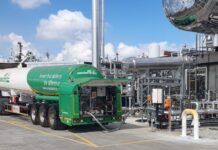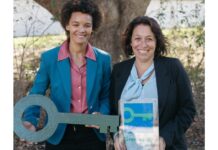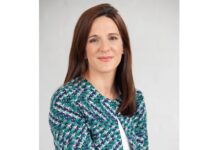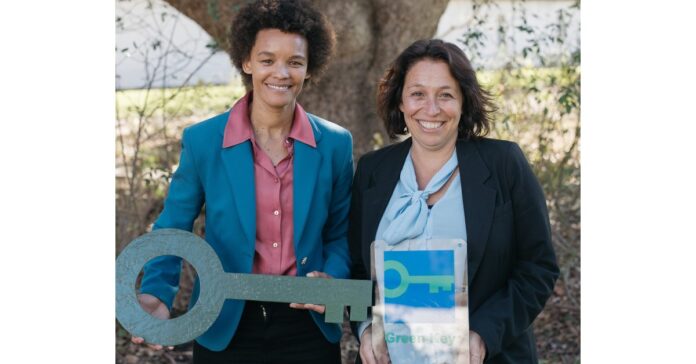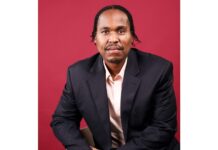340-year-old icon of South African heritage affirms global leadership in regenerative tourism
Franschhoek, South Africa — 5 August 2025 — As global tourism is projected to generate up to 30 billion visits and contribute $16 trillion to the global economy by 2034, it is also under increasing scrutiny. The World Economic Forum’s Travel and Tourism at a Turning Point report (July 2025) highlights a growing paradox: while nature remains the main attraction for travellers, unchecked tourism is accelerating biodiversity loss, waste, and carbon emissions, threatening the very ecosystems that draw visitors.
Without action, tourism’s greenhouse gas emissions could rise to as much as 15% of global totals by 2034, and waste output will far outpace natural limits.
In response to these mounting pressures, Boschendal is proud to announce that it has officially achieved the prestigious Green Key certification for its accommodation offering, becoming the first wine estate in the world to hold this status.
“This landmark achievement underscores our commitment not just to hospitality excellence, but to actively regenerating the land and people that sustain us,” said Amy Kropman, CEO of Boschendal Farm. “As we honour 340 years of history this September, becoming the first wine estate in the world to earn Green Key recognition for its accommodation is a powerful validation of our regenerative philosophy in action. It reflects our deeply held values: from taking care of today to acting with purpose like the bee, staying steady in rhythm, and showing up curious to spark collaboration and creativity—we aim to regenerate not only the soil, but also the people who live, work and stay with us.”
The Green Key certification, managed nationally by the Wildlife and Environment Society of South Africa (WESSA) and coordinated internationally by the Foundation for Environmental Education (FEE), is one of the most respected global eco-labels in the tourism industry. It requires rigorous compliance and is awarded to establishments that demonstrate excellence in environmental management, resource efficiency, ethical practices and community engagement.
WESSA CEO, Cindy-Lee Cloete, shares that, “This is a truly remarkable milestone that sets a global precedent. This certification formally recognises Boschendal’s leadership in sustainable tourism and is a powerful testament to the wine estate’s deep commitment to heritage, innovation, and environmental stewardship.”
Boschendal’s sustainability practices include integrating renewable energy sources into its operations through an expanding solar infrastructure, and from 1 August, the estate has introduced a 2% Conservation Levy on all accommodation stays. This contribution directly supports the care and protection of Boschendal’s remarkable natural landscape—funding biodiversity-friendly, regenerative farming, conservation of indigenous flora and fauna, and improvements in water and energy efficiency to help ensure the long-term resilience of the land.
Boschendal’s Green Key certification reflects its strong alignment with global best practices in sustainable tourism:
- A dedicated environmental manager and green committee oversee progress and governance;
- A formal sustainability policy and action plan addresses climate change, biodiversity protection, resource efficiency, and social equity;
- Measurable reductions in carbon emissions, water consumption, and waste output are supported by guest engagement and transparent reporting;
- Local partnerships support a wide range of initiatives, including biodiversity conservation, youth skills development, and ethical supplier sourcing.
Beyond certification, Boschendal’s regenerative farming programme, detailed in its Future of Farming initiative, exemplifies its deeper commitment to ecological renewal. Key practices include:
- Holistic soil regeneration that promotes symbiotic plant–microbiome systems, reduces reliance on synthetic inputs, and improves water retention and carbon sequestration;
- Integrated livestock rotations with free-roaming cattle, pigs, chickens and bees that restore soil fertility, control invasive vegetation, and enhance pollination and nutrient cycles;
- On-site smart monitoring, including soil moisture sensors and microclimate forecasting tools to enable precision irrigation and land management;
- Conservation of over 700 hectares in partnership with the Greater Simonsberg Conservancy, safeguarding biodiversity corridors and habitats.
“Being part of Boschendal’s Green Key journey has been a unique and rewarding experience. The team’s energy, collaboration, and deep commitment to sustainability are truly inspiring. This achievement sets the tone for environmentally responsible hospitality across South Africa’s wine regions, and we’re proud to partner with such a forward-thinking estate,” adds Tevya Visser, Green Key Programme Manager at WESSA.
The need for such regenerative approaches is urgent. The WEF report warns that unchecked tourism growth places immense pressure on natural heritage sites and vulnerable ecosystems through water stress, emissions, waste and habitat destruction. Boschendal’s efforts directly confront these risks, offering a blueprint for building resilience through environmental stewardship.
“We see Green Key not as a badge, but as a commitment to regeneration, accountability and purpose,” continued Kropman. “Guests from key markets like the UK and Germany increasingly seek aligned, impactful travel experiences—and this certification brings credibility to that promise.”
The official Green Key handover ceremony took place on 1 August at Boschendal, with the estate’s senior leadership and Green Key representatives in attendance.
At Boschendal, world-class hospitality and ecological stewardship are inextricably linked. This milestone positions the estate as a global exemplar of how heritage destinations can evolve into regenerative leaders, meeting modern expectations without compromising the environment.

